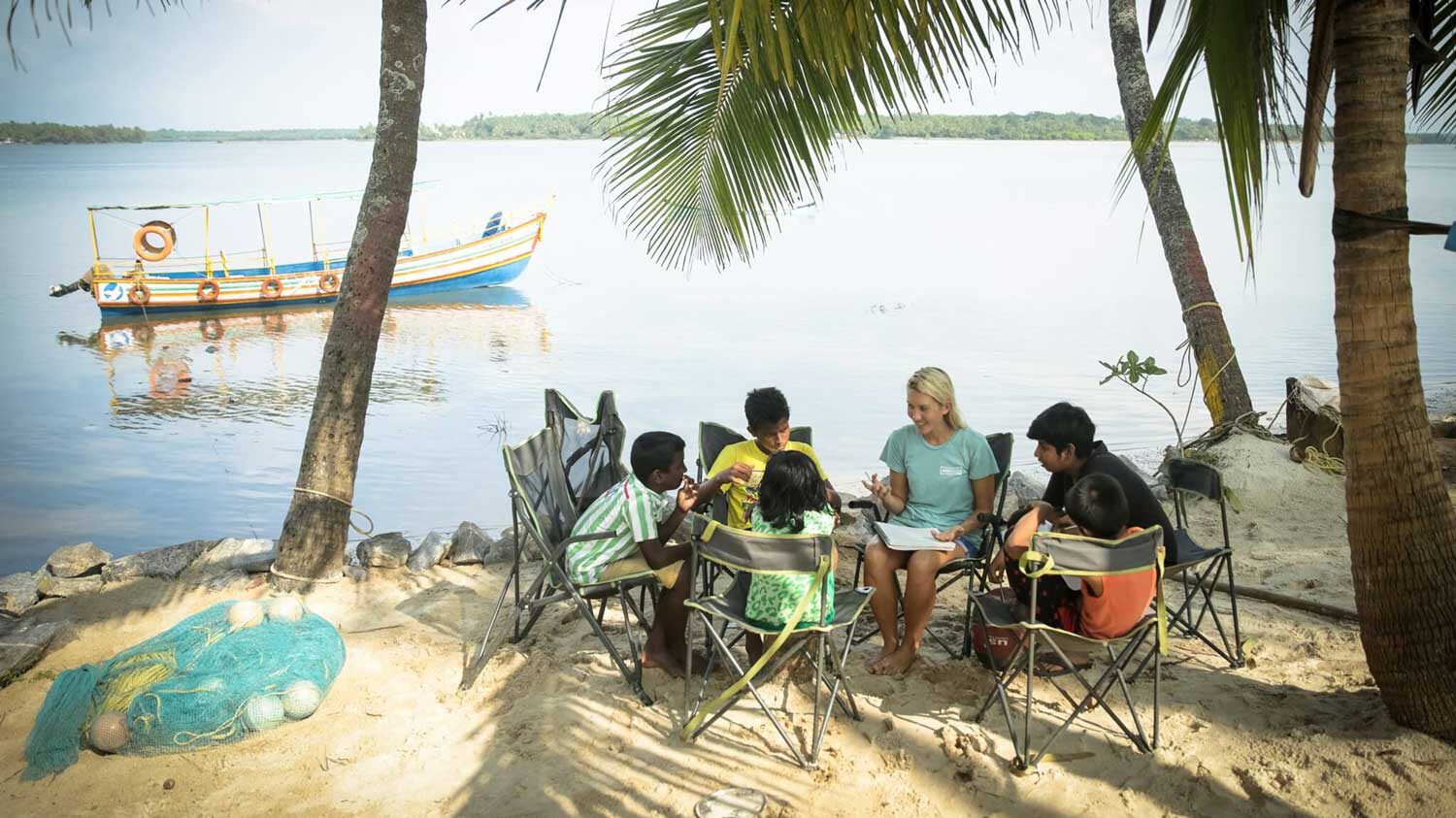Plastic and children share a few common characteristics. Plastic is everywhere. So are young people. Plastic lasts for decades. Children are our future. Plastic is flexible, versatile and resilient. Kids are much the same.
Now, while comparing young people to a carbon-rich chemical mixture transformed into a pliable, solid structure often mismanaged, discarded into our waterways, and then, regarded as a global crisis may cause you to bristle, bare with me.
Children will inherit industrialization’s curse of convenience that results in our land, rivers, lakes, and oceans becoming clogged with plastic debris. Today, many young people in the tropical majority countries around the world have no recollection of what a white sandy beach looks like or a street without candy wrappers flattened against corroded drain gutters. Children’s new baseline understanding of their built and natural environments is somewhere between a space with “a few plastic bags” to one so permeated with waste that the area is considered an unregulated garbage dump. When organizing cleanups, many young people I’ve spoken with do not immediately understand why we are removing items that have been there for years. Why and what difference does it make? These are critical questions for children to ask and adults to answer. Children are growing up in the plastic age and unlike the bronze, iron and copper age, we tend to use plastic once and then, toss it away. The children we work with live in the away, the places where plastic ends up and slowly degrades into the soil, the bellies of marine creatures, and all the way up the food chain back to us, the consumers. This is why engaging young people is critical. The reasons we appreciate plastic are similar to the reasons we look to young people with so much hope. Engaging kids through the power of play, creativity, science and impact storytelling is critical for our sustainable future.
I am the founder of Beyond the Surface, a grassroots nonprofit that leverages surfing as unstructured play in wild settings that promotes the cognitive, creative, physical, social and emotional development of young people while also engendering values for a lifelong commitment to environmental stewardship and actionable social change. When you cherish the ocean as a playground, you tend to it as a loved space. Kids relate the ordinary sea in an extraordinary way through swimming and eventually, wave-riding. Ocean conservation is a social justice issue. Through Youth Participatory Action Research methods that use audiovisual tools and mindfulness practices, kids in our programs examine issues facing their fishing villages and co-create solutions. The challenge that most concerns the young people we work with in plastic pollution.
Together with my partner, Nicolás Landa Tami, a video journalist and audiovisual arts educator from Lima, Peru, we facilitate participatory media workshops with local youth growing up in small-scale fishing villages to examine plastic waste up-close. Students document the inorganic matter on their beaches, village corners, and agricultural land. With visual documentation and creative descriptions, we brainstorm potential solutions with kids, their parents, community leaders and local officials. We’ve built benches and even a skatepark made from plastic water bottles stuffed with chip bags, cigarette ends, containers and lighters, and then covered with cement. Our goal is to find small-scale solutions but also, serve as a digital platform to amplify and echo the often unheard voices. Local people are speaking up but are often spoken over. The children we collaborate with have free-range to come up with stories that address the issue of plastic pollution in their communities. Whether it is a stop-motion animation about mutant animals who grow sixth limbs and fifth eyeballs from eating plastic or if it’s step-by-step instructions on how to prevent plastics from entering our seas, these kids have brilliant communications skills that must be nurtured. The Sustainable Development Goals are hollow if conversations are not being had with local community members, especially youth. Dialogues must be had at decision-making tables that include small-scale fishing villages and isolated, marginalized coastal and riparian communities seated and participating.


